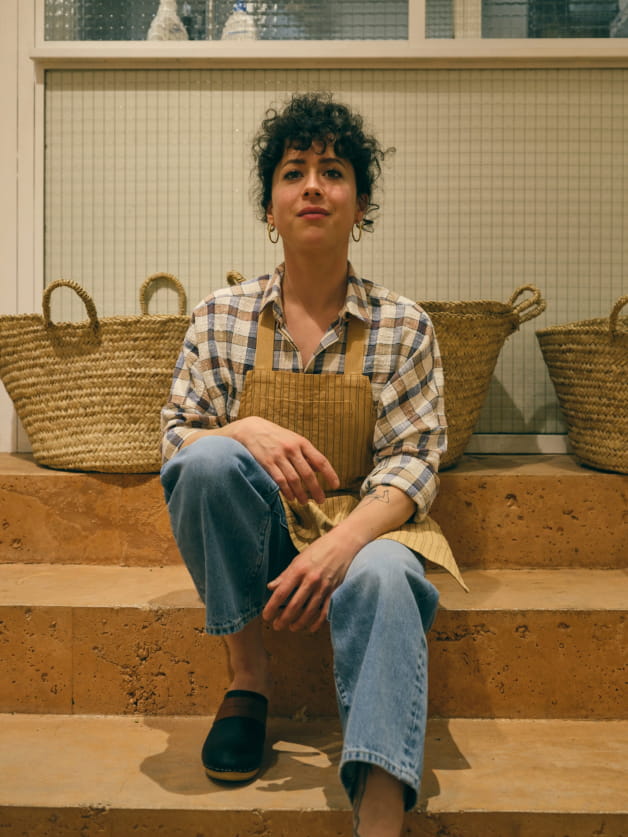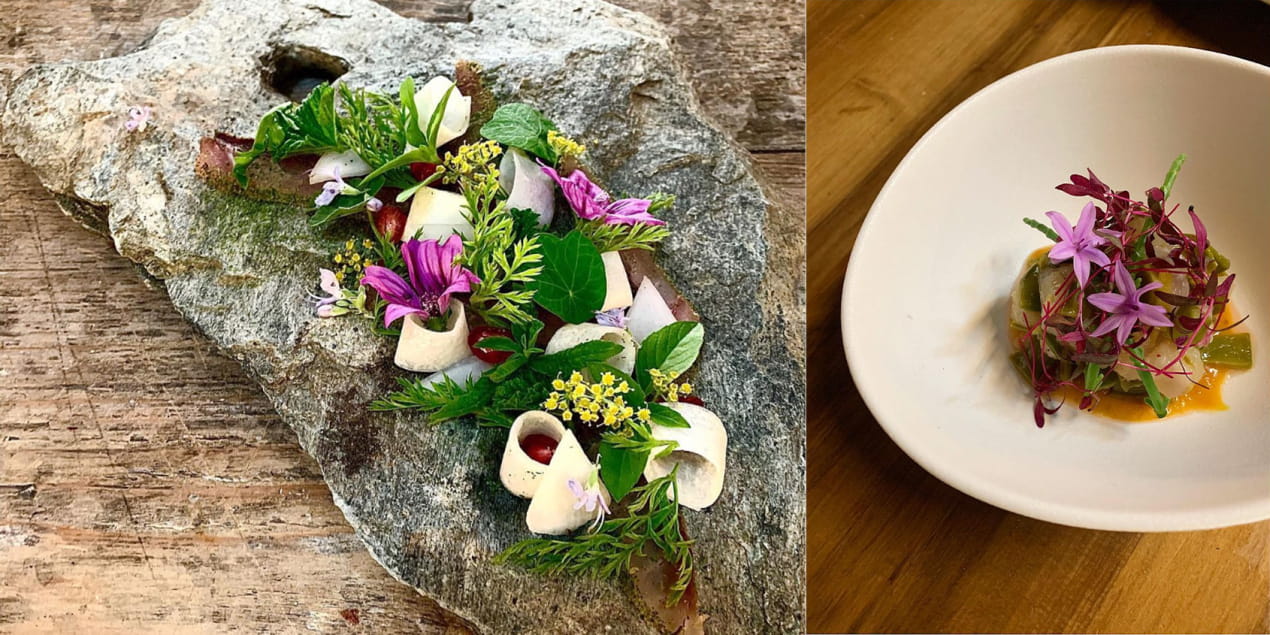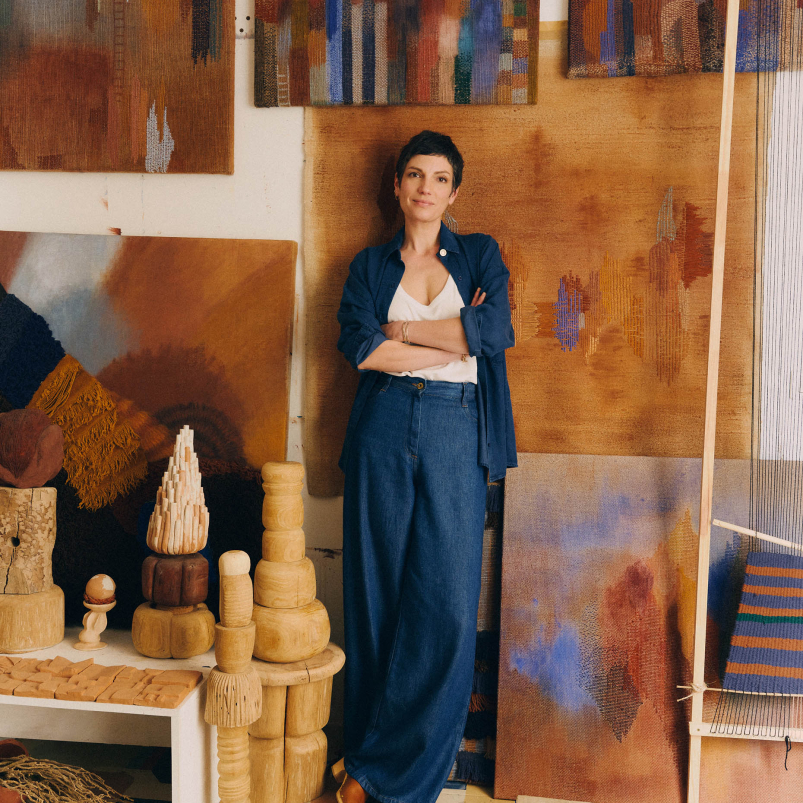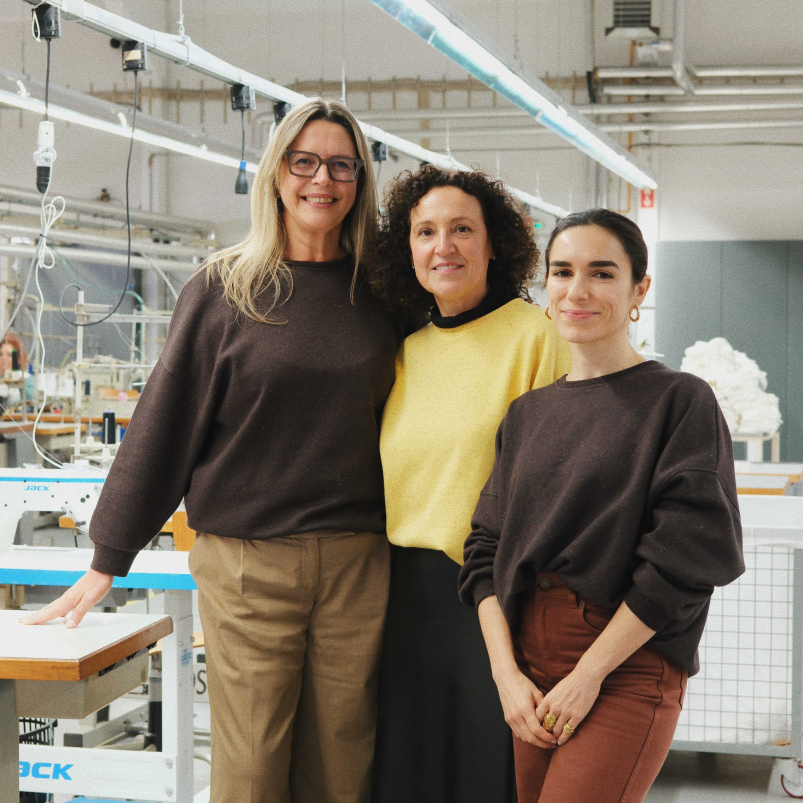Photograhies : FLORIAN TOUZET
Lilly Gratzfeld describes herself as a culinary artist, a master craftsman and a "fermentationist". This sets the tone for this extraordinary chef who distills a joyful and creative cuisine in her various projects, from collaborations to residencies. In her baggage, her mother's traditional Filipino dishes, memories of her great-grandmother's cellar where fermentation jars were stacked... It is this multicultural heritage and her insatiable curiosity for all arts, from tattooing to craftsmanship, that drove her to develop Rosa Pilpel, a hybrid project in which culinary art and other disciplines intertwine. On the occasion of the first chef residency at Sessùn Alma, we met Lilly Gratzfeld between two services.









